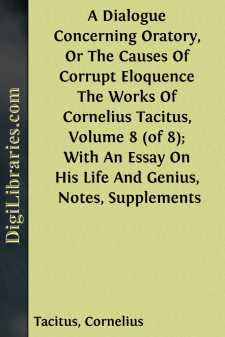Categories
- Antiques & Collectibles 13
- Architecture 36
- Art 48
- Bibles 22
- Biography & Autobiography 814
- Body, Mind & Spirit 145
- Business & Economics 28
- Children's Books 17
- Children's Fiction 14
- Computers 4
- Cooking 94
- Crafts & Hobbies 4
- Drama 346
- Education 58
- Family & Relationships 59
- Fiction 11834
- Foreign Language Study 3
- Games 19
- Gardening 17
- Health & Fitness 34
- History 1378
- House & Home 1
- Humor 147
- Juvenile Fiction 1873
- Juvenile Nonfiction 202
- Language Arts & Disciplines 89
- Law 16
- Literary Collections 686
- Literary Criticism 179
- Mathematics 13
- Medical 41
- Music 40
- Nature 179
- Non-Classifiable 1768
- Performing Arts 7
- Periodicals 1453
- Philosophy 66
- Photography 2
- Poetry 897
- Political Science 203
- Psychology 45
- Reference 154
- Religion 516
- Science 126
- Self-Help 85
- Social Science 82
- Sports & Recreation 34
- Study Aids 3
- Technology & Engineering 59
- Transportation 23
- Travel 463
- True Crime 29
Our website is made possible by displaying online advertisements to our visitors.
Please consider supporting us by disabling your ad blocker.
The Germany and the Agricola of Tacitus
Categories:
Description:
Excerpt
INTRODUCTION.
Very little is known concerning the life of Tacitus, the historian, except that which he tells us in his own writings and those incidents which are related of him by his contemporary, Pliny.
His full name was Caius Cornelius Tacitus. The date of his birth can only be arrived at by conjecture, and then only approximately. The younger Pliny speaks of him as prope modum aequales, about the same age. Pliny was born in 61. Tacitus, however, occupied the office of quaestor under Vespasian in 78 A.D., at which time he must, therefore, have been at least twenty-five years of age. This would fix the date of his birth not later than 53 A.D. It is probable, therefore, that Tacitus was Pliny's senior by several years.
His parentage is also a matter of pure conjecture. The name Cornelius was a common one among the Romans, so that from it we can draw no inference. The fact that at an early age he occupied a prominent public office indicates that he was born of good family, and it is not impossible that his father was a certain Cornelius Tacitus, a Roman knight, who was procurator in Belgic Gaul, and whom the elder Pliny speaks of in his "Natural History."
Of the early life of Tacitus and the training which he underwent preparatory to those literary efforts which afterwards rendered him a conspicuous figure among Roman literateurs we know absolutely nothing.
Of the events of his life which transpired after he attained man's estate we know but little beyond that which he himself has recorded in his writings. He occupied a position of some eminence as a pleader at the Roman bar, and in 77 A.D. married the daughter of Julius Agricola, a humane and honorable citizen, who was at that time consul and was subsequently appointed governor of Britain. It is quite possible that this very advantageous alliance hastened his promotion to the office of quaestor under Vespasian.
Under Domitian, in 88, Tacitus was appointed one of fifteen commissioners to preside at the celebration of the secular games. In the same year he held the office of praetor, and was a member of one of the most select of the old priestly colleges, in which a pre-requisite of membership was that a man should be born of a good family.
The following year he appears to have left Rome, and it is possible that he visited Germany and there obtained his knowledge and information respecting the manners and customs of its people which he makes the subject of his work known as the "Germany."
He did not return to Rome until 93, after an absence of four years, during which time his father-in-law died.
Some time between the years 93 and 97 he was elected to the senate, and during this time witnessed the judicial murders of many of Rome's best citizens which were perpetrated under the reign of Nero. Being himself a senator, he felt that he was not entirely guiltless of the crimes which were committed, and in his "Agricola" we find him giving expression to this feeling in the following words: "Our own hands dragged Helvidius to prison; ourselves were tortured with the spectacle of Mauricus and Rusticus, and sprinkled with the innocent blood of Senecio."
In 97 he was elected to the consulship as successor to Virginius Rufus, who died during his term of office and at whose funeral Tacitus delivered an oration in such a manner to cause Pliny to say, "The good fortune of Virginius was crowned by having the most eloquent of panegyrists."
In 99 Tacitus was appointed by the senate, together with Pliny, to conduct the prosecution against a great political offender, Marius Priscus, who, as proconsul of Africa, had corruptly mismanaged the affairs of his province....



